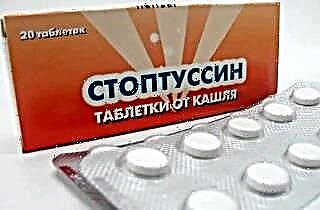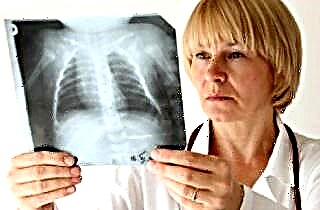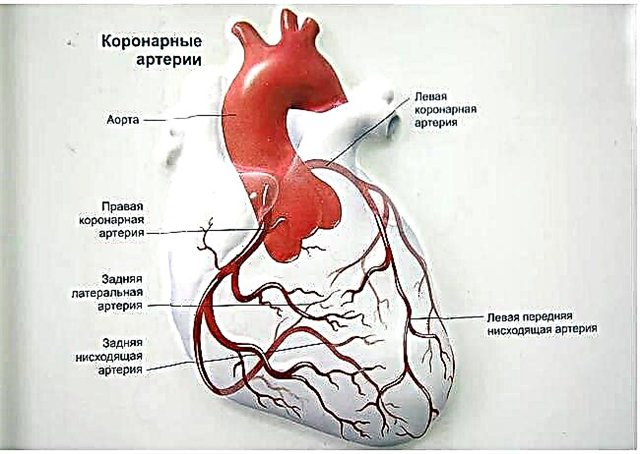Coughing is a natural reaction to various stimuli. With its help, our body cleans itself and frees the respiratory organs from accidental small particles or phlegm that appears during infectious diseases. This function is very important and beneficial for our body. However, if a dry cough is harsh, torments and causes discomfort, you need to ease its course, thereby helping to remove the secretion from the bronchi.
Bronchospasm is provoked by various factors. The choice of the “correct” cough pill should be based on the symptoms and the cause of the disease. A cough without secretion indicates an inflammatory, allergic, infectious or non-infectious process.
When bronchospasm appears
 The list of ailments in which the patient suffers from a dry cough is long and is not limited only to colds. The most common causes of bronchospasm:
The list of ailments in which the patient suffers from a dry cough is long and is not limited only to colds. The most common causes of bronchospasm:
- respiratory tract diseases;
- allergy;
- childhood infectious diseases (for example, whooping cough);
- tumors of the respiratory system;
- chemical irritants: acrid odors of gasoline or gas vapors, paints and varnishes;
- heart pathology;
- lung disease;
- disturbances in the work of the pharyngeal muscles;
- smoking;
- stress and pathological nervous conditions;
- taking certain medications.
The causes of coughing affect the choice of the drug, however, it is strictly forbidden to determine the diagnosis on your own and is extremely dangerous. If the cough is annoying and pretty toxic to life, you need to contact the ENT for advice and the selection of therapy.
A long-term cough with a high fever is often a symptom of pneumonia. If a painful bronchospasm overcomes at normal body temperature, and at the same time the patient feels a sore throat, this is a manifestation of pharyngitis (inflammation of the pharynx).
The nature of the cough is also an important sign for clarifying the cause of the disease. "Barking" cough is a manifestation of colds and viral infections. Do not underestimate the severity of this type of bronchospasm: against its background, the vocal cords swell, asphyxia is possible. Even with a seemingly common cold, the patient needs urgent therapy.
Tuberculosis, heart failure or lung cancer can be recognized by the characteristic dull cough, bronchial asthma and whooping cough by a dry, suffocating cough with vomiting.
Cough caused by taking certain groups of drugs does not require treatment and goes away on its own after the end of the course of aggressive therapy.
Correct and successful treatment of bronchospasm is guaranteed after establishing the cause of its occurrence. For example, a cough in heart failure can be easily confused with bronchial disease. While a person is treating bronchitis, heart failure gets worse.
The main task in the treatment of dry cough is its speedy transformation into a moist productive form and facilitating the elimination of microbes along with sputum from the body. Misdiagnosis and self-medication are fraught with dangerous complications and the development of more serious diseases (cancer, tuberculosis).
Classification of cough suppressants
 The following groups of drugs are distinguished:
The following groups of drugs are distinguished:
- Depressing cough by blocking nerve receptors in the brain. Some drugs contain narcotic substances.
- Medicines for the healing of the trachebronchial tree.
- Combined drugs (expectorants, bronchodilators, anti-inflammatory) aimed at regulating sputum production.
If dry suffocating bronchospasm does not cope with the cleansing functions, the only way to get rid of it is to take medications that suppress the activation of the cough center or act on the receptors of the trachea and bronchi. Mucolytics and expectorant drugs are not appropriate here and can complicate the clinical picture. For the treatment of paroxysmal dry cough, medications with and without drugs are relevant.
Dry cough tablets for adults containing narcotic substances are dispensed exclusively on prescription from the attending physician due to the possible development of addiction.
 Drug-free drugs are just as effective and much safer. They do not depress breathing and are freely available in pharmacies. The bronchial mucosa is quite sensitive, its irritation activates the cerebral areas responsible for coughing and causes bronchospasm. The effect of drugs acting on the trachebronchial tree is to suppress the sensitivity of the mucous membrane and suppress the cough receptors.
Drug-free drugs are just as effective and much safer. They do not depress breathing and are freely available in pharmacies. The bronchial mucosa is quite sensitive, its irritation activates the cerebral areas responsible for coughing and causes bronchospasm. The effect of drugs acting on the trachebronchial tree is to suppress the sensitivity of the mucous membrane and suppress the cough receptors.
Dry cough tablets with a combined composition are quite common and highly effective. They contain antitussives and oils that soften the mucous membranes.
However, these funds are prohibited from taking when the cough turns into a wet form, since blocking cough impulses disrupts the process of self-cleaning of the lungs and provokes pneumonia. Preparations should be excluded in case of individual intolerance to their components, pregnant women, lactating women, young children.
Regardless of the group of drugs, before starting therapy, it is necessary to consult with an ENT specialist.
Cough reflex suppressant pills
- "Libeksin" is a remedy for the treatment of dry coughs of various origins. Indications for use: acute infectious processes in the upper respiratory tract, viral diseases, pneumonia, acute and chronic bronchitis, heart failure. The drug relieves pain, relieving irritation of the mucous membrane receptors, dilates the bronchi and slightly reduces the activity of the respiratory center, without inhibiting breathing. "Libeksin Muko" contains a mucolytic that dilutes bronchial secretions. The action of the drug is short-lived - from 3 to 4 hours.
 "Bitiodin" eliminates cough, affecting the sensitive nerve fibers of the mucous membrane, has a slight effect on the central nervous system. This drug soothes a suffocating cough in case of broncho-pulmonary diseases. The active substances do not cause dependence, have few side reactions and contraindications (with the exception of individual intolerance to the components of the drug).
"Bitiodin" eliminates cough, affecting the sensitive nerve fibers of the mucous membrane, has a slight effect on the central nervous system. This drug soothes a suffocating cough in case of broncho-pulmonary diseases. The active substances do not cause dependence, have few side reactions and contraindications (with the exception of individual intolerance to the components of the drug).- "Stopussin" - tablets are indicated for dry coughs of various etiologies, they inhibit bronchospasm. The complex composition is supplemented with mucolytic and expectorant substances. Contraindications: women during pregnancy, nursing mothers, children under 12 years old. Adverse reactions are manifested in the form of a lack of appetite, drowsiness, dizziness, stomach discomfort, migraines and allergies.
- Tusuprex is an antitussive drug with a slight expectorant effect. It is used for diseases of the upper respiratory system and lungs. The tablets do not inhibit breathing, do not provoke addiction. Among the adverse reactions is a disorder of the digestive tract. Prohibited for admission for bronchial diseases: asthma, inflammatory processes associated with difficult-to-remove bronchial secretions.
- "Codeine" is a drug that actively affects the brain. Side effects include constipation. Long-term use of the drug causes addiction, weakening or complete absence of therapeutic action and the formation of drug dependence.
- "Demorphan" - pills that are taken to soothe a cough in case of respiratory diseases. Similar in effect to Codeine.Does not depress breathing, weakly relieves pain.
Peripheral drugs
- "Alex" is a chewable lozenge used for attacks of dry, suffocating coughs. The active components act on the central nervous system, have an expectorant effect, increase the production of bronchial secretions, dilute it and relieve spasms. The effect of the lozenges comes in half an hour and lasts up to 6 hours. Prohibited for the treatment of women during pregnancy and lactation, children under 4 years of age. In case of liver diseases, prior consultation with a doctor is required.
 "Glauvent" - antispasmodic tablets that do not affect the brain. They are prescribed as an antitussive agent for bronchial diseases. Side reactions are possible in the form of dizziness, nausea and low blood pressure. Not recommended for therapy for diseases with abundant bronchial secretions, hypotension, and myocardial infarction.
"Glauvent" - antispasmodic tablets that do not affect the brain. They are prescribed as an antitussive agent for bronchial diseases. Side reactions are possible in the form of dizziness, nausea and low blood pressure. Not recommended for therapy for diseases with abundant bronchial secretions, hypotension, and myocardial infarction.- "Codelac" is a combined preparation. The main active ingredient - codeine - affects the cough center and suppresses bronchospasm. Additional components provide an expectorant effect. These tablets thin bronchial secretions, relieve spasms and tension of smooth muscles. Their action begins in half an hour, the effect lasts up to 6 hours. Codeine is a narcotic substance, long courses of treatment can provoke addiction. There are side effects from the digestive tract, nervous system, allergies are possible.
Medicines that regulate bronchial secretion
Drugs in this group help to increase the amount of phlegm, thin it and stimulate evacuation. This occurs due to irritation of the stomach and excitation of vomiting impulses, as a result of which coughing occurs. These funds are recommended for the transformation of a dry cough into a wet cough, when a viscous bronchial secretion is absent or excreted in small quantities.
Drugs with expectorant properties should not be combined with drugs that suppress coughs, as this will lead to a large accumulation of phlegm and the development of inflammation in the lower respiratory organs.
Means of this class differ in effectiveness (direct and reflex action) and composition (vegetable, chemical and combined).
 "Mukaltin" - time-tested plant-based cough tablets. They relieve inflammation, correct mucus secretion and its consistency, have expectorant properties.
"Mukaltin" - time-tested plant-based cough tablets. They relieve inflammation, correct mucus secretion and its consistency, have expectorant properties.- "Influbene" - combined tablets of a wide spectrum of action. They include paracetamol, an antipyretic analgesic that relieves inflammation. The rest of the active ingredients normalize blood circulation, relieve spasms, block coughing attacks, have an antihistamine effect, and relieve swelling. This drug is used symptomatically.
- Fervex Dry Cough is a soluble medicine for relieving coughing attacks in case of ARVI. The composition contains pain relievers, antipyretic and antihistamines.
If bronchospasm bothers a long period, you need to seek medical help. The specialist will help to establish its cause and prescribe an individual course of treatment.
It is important to remember that a cough is just a symptom of a disease, and pills are an adjunct to relieve severe manifestations of the disease.

 "Bitiodin" eliminates cough, affecting the sensitive nerve fibers of the mucous membrane, has a slight effect on the central nervous system. This drug soothes a suffocating cough in case of broncho-pulmonary diseases. The active substances do not cause dependence, have few side reactions and contraindications (with the exception of individual intolerance to the components of the drug).
"Bitiodin" eliminates cough, affecting the sensitive nerve fibers of the mucous membrane, has a slight effect on the central nervous system. This drug soothes a suffocating cough in case of broncho-pulmonary diseases. The active substances do not cause dependence, have few side reactions and contraindications (with the exception of individual intolerance to the components of the drug). "Glauvent" - antispasmodic tablets that do not affect the brain. They are prescribed as an antitussive agent for bronchial diseases. Side reactions are possible in the form of dizziness, nausea and low blood pressure. Not recommended for therapy for diseases with abundant bronchial secretions, hypotension, and myocardial infarction.
"Glauvent" - antispasmodic tablets that do not affect the brain. They are prescribed as an antitussive agent for bronchial diseases. Side reactions are possible in the form of dizziness, nausea and low blood pressure. Not recommended for therapy for diseases with abundant bronchial secretions, hypotension, and myocardial infarction. "Mukaltin" - time-tested plant-based cough tablets. They relieve inflammation, correct mucus secretion and its consistency, have expectorant properties.
"Mukaltin" - time-tested plant-based cough tablets. They relieve inflammation, correct mucus secretion and its consistency, have expectorant properties.

